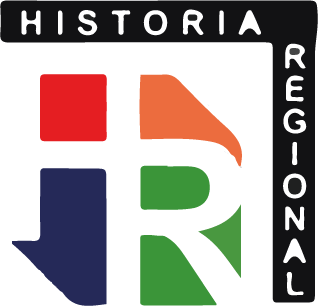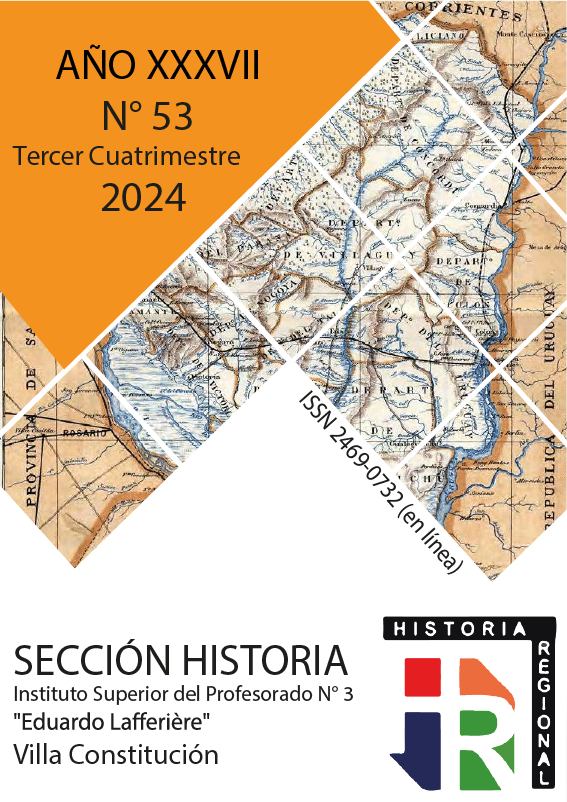Dinámica del desarrollo de la ciencia histórica de Kazajistán durante los años de la independencia (1991-2020): Análisis científico, valor histórico y trascendencia
##plugins.themes.bootstrap3.article.main##
Resumen
Este artículo analiza los cambios positivos que se han producido desde la independencia de Kazajstán para llenar los vacíos, como la protección de la investigación fundamental en la historia del país para eliminar los "vacíos" y los resultados de las tesis de doctorado sobre temas importantes, así como las políticas estatales y proyectos de investigación financiados sobre temas relevantes. En la investigación histórica, se ha realizado un análisis exhaustivo sobre distintos temas que marcan las etapas del desarrollo del Kazajistán moderno, lo cual ha permitido un estudio profundo y objetivo de los fenómenos históricos, contribuyendo al avance de la ciencia histórica moderna. La integración de los historiadores rusos en la comunidad científica internacional ha sido crucial, fomentando el desarrollo de nuevos enfoques conceptuales y metodológicos, ampliando el acceso a fuentes de archivo únicas y enriqueciendo el conocimiento sobre la historia de Kazajstán.
Descargas
La descarga de datos todavía no está disponible.
##plugins.themes.bootstrap3.article.details##
Cómo citar
Abil, Y. A., Karassayev, G. M., Ualtayeva, A. S., Kaliyeva, M. S., & YensenovK. А. (2024). Dinámica del desarrollo de la ciencia histórica de Kazajistán durante los años de la independencia (1991-2020): Análisis científico, valor histórico y trascendencia. Historia Regional, (53), 1-14. Retrieved from https://historiaregional.org/ojs/index.php/historiaregional/article/view/973
Sección
Artículos

Esta obra está bajo licencia internacional Creative Commons Reconocimiento 4.0.
Los autores que publican en esta revista están de acuerdo con los siguientes términos:
- Los autores conservan los derechos de autor y garantizan a la revista el derecho de ser la primera publicación del trabajo al igual que licenciado bajo una Creative Commons Attribution License que permite a otros compartir el trabajo con un reconocimiento de la autoría del trabajo y la publicación inicial en esta revista.
- Los autores pueden establecer por separado acuerdos adicionales para la distribución no exclusiva de la versión de la obra publicada en la revista (por ejemplo, situarlo en un repositorio institucional o publicarlo en un libro), con un reconocimiento de su publicación inicial en esta revista.
- Se permite y se anima a los autores a difundir sus trabajos electrónicamente (por ejemplo, en repositorios institucionales o en su propio sitio web) antes y durante el proceso de envío, ya que puede dar lugar a intercambios productivos, así como a una citación más temprana y mayor de los trabajos publicados (Véase The Effect of Open Access) (en inglés).
Citas
Adelchanov, K., Zharkenova, A., Kolumbaeva, Z., Muratbekkyzy, B., Erdenbekova, Z., & Selkebayeva, A. (2016). Steppes deer stones. Anthropologist, 26(1-2), 1-4. DOI: https://doi.org/10.1080/09720073.2016.11892121
Aguilar Gil, Y. (2020). A tribute to our roots? Cultural misappropriation in Mexico. Catopard.
Alekseyev, V. V., Kradin, N. N., Korotayev, A. V., & Grinin, L. Ye. (2014). Theory and methodology of history. Volgograd: Uchitel.
Arynov, K., Zhaksylykova, L., Chernysh, N., Chekayeva, R., & Khvan, Y. (2022). A Basis for Creating Educational and Production Centers and Folk Applied Craft Centers in the Settlements of Kazakhstan. ISVS e-journal, 9(5), 291-302.
Ayagan, B. G. (2019). Horizons of national history (development of the science of history of Kazakhstan in the era of independence). Astana: LLP Daeme.
Ayagan, B. G., Abzhanov, H. M., & Mahat, D. A. (2010). Textbook of modern history of Kazakhstan. Almaty: Raritet.
Ayagan, B., & Auanasova, A. (2015). Nursultan Nazarbayev: Man in power. Almaty: Litera-M.
Bekmakhanov, E. (2005). The life and work of a scientist and the history of Kazakhstan. Retrieved from: https://ua1lib.org/ireader/3064086
Bibliographic index of doctoral and candidate dissertations in historical sciences. (2003). Almaty: TEI.
Dudar, V. (2023). Ethical guidelines for collaborative research in European ethnography. European Chronicle, 8(4), 15-25. DOI: https://doi.org/10.59430/euch/4.2023.15
Esmagambetov, K. L. (2000). Philosophy of Independence. Women of Kazakhstan, 5, 1-5.
Gonzalez Casanova, P. (1965). Internal Colonialism and National Development. Studies in Comparative International Development, 1(4), 27-37.
Guha, R. 1983. Elementary Aspects of Peasant Insurgency in Colonial India. Delhi: Oxford University Press.
Hasanova, J. V. (2022). EU’s Eastward Enlargement Policy in the 1990s and Turkey. Voprosy Istorii, 2022(1-2), 177-190. DOI: https://doi.org/10.31166/VoprosyIstorii202201Statyi68
Heather, P. (2012). Empires and Barbarians: The Fall of Rome and the Birth of Europe. Oxford: Oxford University Press.
History of Kazakhstan (from ancient times to the present). (2010). Almaty: Atamura.
How has Kazakh patriotism changed over the years of Independence? (2021). Retrieved from: https://strategy2050.kz/ru/news/kak-izmenilsya-kazakhstanskiy-patriotizm-za-gody-nezavisimosti/
Karasaev, G. M., Dyusen, S. Zh., & Kaliev, Zh. N. (2018). Leader of the Nation N. A. Nazarbayev and the foreign policy of independent Kazakhstan. Astana: BIKA.
Kotsur, L. (2023). Formation of national pride is a necessary component of statehood. Society, Document, Communication, 8(1), 182-198. DOI: https://doi.org/10.31470/2518-7600-2023-18-182-198
Kozybayev, M. K. (1998). Intelligence of history (Zaman Pass). Almaty: Science.
Kundakbayeva, Zh. B. (2016). The history of Kazakhstan from the earliest period to the present time. Almaty: Qazaq university.
Kuzembaevich, A. (2014). Theory and methodology of history. Kostanay: Kostanay State Pedagogical Institute.
Lapin N. S. (2017). President of the Republic of Kazakhstan N. A. Nazarbayev and the formation of the historical consciousness of Kazakhstan people. Astana: BiKA.
Molotkina, V., & Khmelnytska, L. (2023). Application of visual sources in history lessons as a means of developing students' critical thinking skills. Society, Document, Communication, 8(1), 227-252. DOI: https://doi.org/10.31470/2518-7600-2023-18-227-252
Nazarbayev, N. A. (2003a). At the turn of the century. Almaty: Atamura.
Nazarbayev, N. A. (2003b). Critical decade. Almaty: Atamura.
Nazarbayev, N. A. (2017). Era of Independence. https://elbasy.kz/sites/default/files/pagefiles/2019-06/423d7253d66cad2c6f68758bcaf33782.pdf
Nimani, A. (2023). European orientation towards the preservation of cultural heritage in the light of historical losses: Institutional and legal issues. European Chronicle, 8(3), 5-15. DOI: https://doi.org/10.59430/euch/3.2023.05
Smolensky, N. I. (2008). Theory and methodology of history. Moscow: Publishing Center “Academy”.
Spivak, G. (1999). A Critique of Post-Colonial Reason: Toward a History of the Vanishing Present. Harvard: Harvard University Press.
State of the Nation Address by President of the Republic of Kazakhstan Kassym-Zhomart Tokayev. (2021). Retrieved from: https://www.akorda.kz/ru/poslanie-glavy-gosudarstva-kasym-zhomarta-tokaeva-narodu-kazahstana-183048
Stavenhagen, R. (1975). Social classes in agrarian societies. Milwaukee: Anchor Press.
Tokayev, K. K. (2008). Belasu. Almaty: Dauir.
Tokayev, K. K. (2021). Independence is the most precious thing. Retrieved from: https://egemen.kz/article/260146-tauelsizdik-barinen-qymbat?fbclid=IwAR1N2pVQ9jftgnYd3x2AH4NS3D_V5PqRPiVrWuoQ6Tae5ta5mtx8lEXYF8
Trushaj, А. (2023). Features of the foreign policy of the Republic of Kazakhstan. Foreign Affairs, 33(5), 45-51. DOI: https://doi.org/10.46493/2663-2675.33(5).2023.45-51
Aguilar Gil, Y. (2020). A tribute to our roots? Cultural misappropriation in Mexico. Catopard.
Alekseyev, V. V., Kradin, N. N., Korotayev, A. V., & Grinin, L. Ye. (2014). Theory and methodology of history. Volgograd: Uchitel.
Arynov, K., Zhaksylykova, L., Chernysh, N., Chekayeva, R., & Khvan, Y. (2022). A Basis for Creating Educational and Production Centers and Folk Applied Craft Centers in the Settlements of Kazakhstan. ISVS e-journal, 9(5), 291-302.
Ayagan, B. G. (2019). Horizons of national history (development of the science of history of Kazakhstan in the era of independence). Astana: LLP Daeme.
Ayagan, B. G., Abzhanov, H. M., & Mahat, D. A. (2010). Textbook of modern history of Kazakhstan. Almaty: Raritet.
Ayagan, B., & Auanasova, A. (2015). Nursultan Nazarbayev: Man in power. Almaty: Litera-M.
Bekmakhanov, E. (2005). The life and work of a scientist and the history of Kazakhstan. Retrieved from: https://ua1lib.org/ireader/3064086
Bibliographic index of doctoral and candidate dissertations in historical sciences. (2003). Almaty: TEI.
Dudar, V. (2023). Ethical guidelines for collaborative research in European ethnography. European Chronicle, 8(4), 15-25. DOI: https://doi.org/10.59430/euch/4.2023.15
Esmagambetov, K. L. (2000). Philosophy of Independence. Women of Kazakhstan, 5, 1-5.
Gonzalez Casanova, P. (1965). Internal Colonialism and National Development. Studies in Comparative International Development, 1(4), 27-37.
Guha, R. 1983. Elementary Aspects of Peasant Insurgency in Colonial India. Delhi: Oxford University Press.
Hasanova, J. V. (2022). EU’s Eastward Enlargement Policy in the 1990s and Turkey. Voprosy Istorii, 2022(1-2), 177-190. DOI: https://doi.org/10.31166/VoprosyIstorii202201Statyi68
Heather, P. (2012). Empires and Barbarians: The Fall of Rome and the Birth of Europe. Oxford: Oxford University Press.
History of Kazakhstan (from ancient times to the present). (2010). Almaty: Atamura.
How has Kazakh patriotism changed over the years of Independence? (2021). Retrieved from: https://strategy2050.kz/ru/news/kak-izmenilsya-kazakhstanskiy-patriotizm-za-gody-nezavisimosti/
Karasaev, G. M., Dyusen, S. Zh., & Kaliev, Zh. N. (2018). Leader of the Nation N. A. Nazarbayev and the foreign policy of independent Kazakhstan. Astana: BIKA.
Kotsur, L. (2023). Formation of national pride is a necessary component of statehood. Society, Document, Communication, 8(1), 182-198. DOI: https://doi.org/10.31470/2518-7600-2023-18-182-198
Kozybayev, M. K. (1998). Intelligence of history (Zaman Pass). Almaty: Science.
Kundakbayeva, Zh. B. (2016). The history of Kazakhstan from the earliest period to the present time. Almaty: Qazaq university.
Kuzembaevich, A. (2014). Theory and methodology of history. Kostanay: Kostanay State Pedagogical Institute.
Lapin N. S. (2017). President of the Republic of Kazakhstan N. A. Nazarbayev and the formation of the historical consciousness of Kazakhstan people. Astana: BiKA.
Molotkina, V., & Khmelnytska, L. (2023). Application of visual sources in history lessons as a means of developing students' critical thinking skills. Society, Document, Communication, 8(1), 227-252. DOI: https://doi.org/10.31470/2518-7600-2023-18-227-252
Nazarbayev, N. A. (2003a). At the turn of the century. Almaty: Atamura.
Nazarbayev, N. A. (2003b). Critical decade. Almaty: Atamura.
Nazarbayev, N. A. (2017). Era of Independence. https://elbasy.kz/sites/default/files/pagefiles/2019-06/423d7253d66cad2c6f68758bcaf33782.pdf
Nimani, A. (2023). European orientation towards the preservation of cultural heritage in the light of historical losses: Institutional and legal issues. European Chronicle, 8(3), 5-15. DOI: https://doi.org/10.59430/euch/3.2023.05
Smolensky, N. I. (2008). Theory and methodology of history. Moscow: Publishing Center “Academy”.
Spivak, G. (1999). A Critique of Post-Colonial Reason: Toward a History of the Vanishing Present. Harvard: Harvard University Press.
State of the Nation Address by President of the Republic of Kazakhstan Kassym-Zhomart Tokayev. (2021). Retrieved from: https://www.akorda.kz/ru/poslanie-glavy-gosudarstva-kasym-zhomarta-tokaeva-narodu-kazahstana-183048
Stavenhagen, R. (1975). Social classes in agrarian societies. Milwaukee: Anchor Press.
Tokayev, K. K. (2008). Belasu. Almaty: Dauir.
Tokayev, K. K. (2021). Independence is the most precious thing. Retrieved from: https://egemen.kz/article/260146-tauelsizdik-barinen-qymbat?fbclid=IwAR1N2pVQ9jftgnYd3x2AH4NS3D_V5PqRPiVrWuoQ6Tae5ta5mtx8lEXYF8
Trushaj, А. (2023). Features of the foreign policy of the Republic of Kazakhstan. Foreign Affairs, 33(5), 45-51. DOI: https://doi.org/10.46493/2663-2675.33(5).2023.45-51

